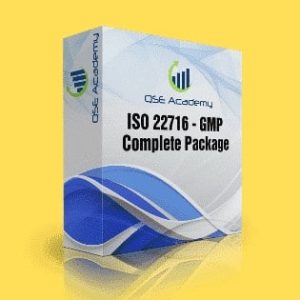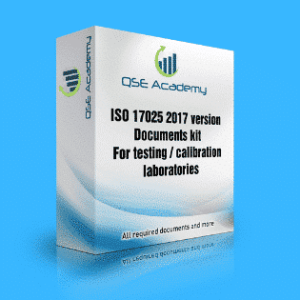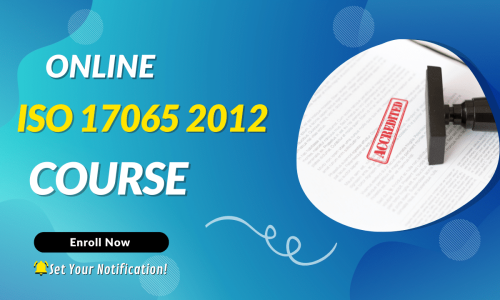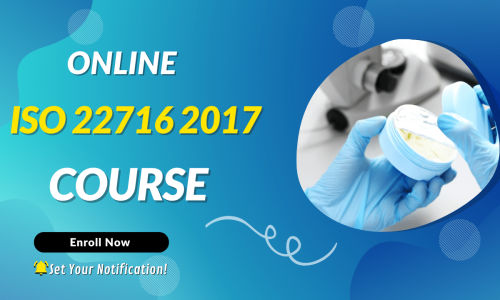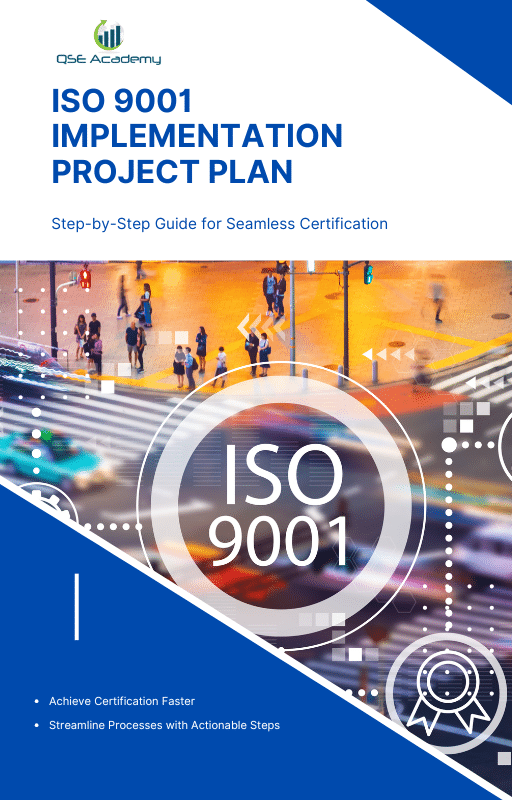Is ISO TS 16949 related to ISO 9001?
If you’ve ever explored quality standards in the automotive industry, you might have stumbled across the term ISO TS 16949. But that probably led to a natural question: Is ISO TS 16949 related to ISO 9001? The answer is yes, and the connection between these two standards is both fascinating and essential for understanding how quality management works in different industries.
At its core, ISO TS 16949 is a standard specifically designed for the automotive sector, focusing on quality management and ensuring that automotive products meet the highest standards. However, what makes it particularly interesting is that it’s built on the foundation of ISO 9001. In other words, ISO TS 16949 wouldn’t exist without ISO 9001, which is the global standard for Quality Management Systems (QMS) across all industries.
So, is ISO TS 16949 related to ISO 9001? Absolutely! They’re like two parts of the same puzzle. ISO 9001 lays down the general principles of quality management that apply to every business, while ISO TS 16949 takes those principles and adds specific requirements tailored to the automotive world. Together, they create a powerful framework that ensures consistency, reliability, and trust in one of the most demanding industries.
In this article, we’ll dive deeper into how ISO TS 16949 is related to ISO 9001, how they differ, and why both are so important for businesses in the automotive sector. Ready to explore? Let’s get started!
What Is ISO TS 16949?
Let’s start by answering a key question: What exactly is ISO TS 16949, and how is it related to ISO 9001? ISO TS 16949 is an international standard specifically designed for the automotive industry. It focuses on creating a Quality Management System (QMS) that ensures the production of high-quality automotive parts, components, and systems. Think of it as a specialized version of ISO 9001 that’s customized for the unique needs of car manufacturers and their suppliers.
The “TS” in ISO TS 16949 stands for “Technical Specification,” which gives you a hint that this standard is highly focused on technical excellence and precision. It covers everything from design and development to production, installation, and even servicing of automotive products. If you’re working in or with the automotive supply chain, adhering to ISO TS 16949 isn’t just a bonus—it’s often a requirement to remain competitive.
How Is ISO TS 16949 Related to ISO 9001?
Here’s the connection: ISO TS 16949 is built on the framework of ISO 9001. It uses all the principles and requirements of ISO 9001 but adds specific criteria that address challenges unique to the automotive sector. This makes ISO TS 16949 an extension or specialization of ISO 9001.
For example, ISO 9001 focuses on general quality management principles like customer satisfaction and continuous improvement. ISO TS 16949 takes those principles and applies them to issues like defect prevention, supplier development, and risk management—things that are especially critical in the automotive industry.
So, if someone asks, Is ISO TS 16949 related to ISO 9001? The answer is a clear yes. In fact, compliance with ISO 9001 is a prerequisite for achieving ISO TS 16949 certification. That’s how closely they’re connected.
Why Was ISO TS 16949 Created?
The automotive industry has incredibly high standards for quality and safety. A single defect in a car part could lead to massive recalls or even endanger lives. To prevent such issues, ISO TS 16949 was developed to ensure that every link in the automotive supply chain—from large manufacturers to small parts suppliers—meets the same high standards.
The goal is simple: consistency. By using ISO TS 16949, automotive businesses can align their operations and create products that meet strict customer and regulatory requirements. And because it’s based on ISO 9001, it ensures that these companies also adopt a strong foundation of quality management practices.
In summary, ISO TS 16949 is closely related to ISO 9001. It takes the universal principles of ISO 9001 and applies them in a way that fits the unique demands of the automotive world. In the next section, we’ll dive deeper into their relationship and explore the specific ways ISO TS 16949 builds on the ISO 9001 framework. Ready to learn more? Let’s go!
How Is ISO TS 16949 Related to ISO 9001?
If you’re wondering how is ISO TS 16949 related to ISO 9001, the answer lies in their close connection. ISO TS 16949 wouldn’t exist without ISO 9001—it’s built entirely on the foundation of ISO 9001. Think of it this way: ISO 9001 is the universal framework for quality management, and ISO TS 16949 customizes that framework to meet the specific demands of the automotive industry.
The Foundation of ISO 9001
ISO 9001 is like the backbone of quality management systems. It lays out the key principles that apply to any industry, like customer focus, continuous improvement, and process-based management. Companies that follow ISO 9001 work toward delivering consistent quality and enhancing customer satisfaction.
When it comes to ISO TS 16949, these same principles are applied—but with an automotive twist. For instance, both standards emphasize reducing defects, but ISO TS 16949 takes it a step further by focusing specifically on defect prevention in the automotive supply chain, where precision and safety are critical.
Building on ISO 9001 with Industry-Specific Requirements
What sets ISO TS 16949 apart is how it adds detailed requirements tailored to the automotive world. For example:
- Supplier Development: While ISO 9001 focuses broadly on managing suppliers, ISO TS 16949 requires automotive companies to actively develop their suppliers to meet strict quality expectations.
- Traceability: ISO TS 16949 includes advanced requirements for tracking materials and parts, which is crucial for identifying issues and ensuring safety in vehicles.
- Risk Management: ISO 9001 introduces risk-based thinking, but ISO TS 16949 expands on it to address specific risks in automotive production, like supply chain disruptions or product recalls.
This is why ISO TS 16949 is related to ISO 9001—it takes the core framework and fine-tunes it to meet the unique challenges of the automotive sector.
A Requirement for Certification
One of the clearest ways ISO TS 16949 and ISO 9001 are linked is through certification. To achieve ISO TS 16949 certification, a company must first comply with ISO 9001. That’s because ISO TS 16949 is essentially an extension of ISO 9001, not a standalone standard. You can think of ISO 9001 as the “foundation course” and ISO TS 16949 as the “advanced level” specifically for the automotive industry.
So, how is ISO TS 16949 related to ISO 9001? The two go hand in hand. ISO TS 16949 takes the general principles of ISO 9001 and tailors them to fit the automotive world, creating a system that ensures high-quality, reliable, and safe automotive products. Without ISO 9001, there would be no ISO TS 16949—it’s that fundamental! In the next section, we’ll explore some of the key differences between these two standards to understand how they work together. Ready to dive in? Let’s keep going!
Key Differences Between ISO TS 16949 and ISO 9001
Now that we’ve established how ISO TS 16949 is related to ISO 9001, it’s time to talk about their differences. While the two standards are closely connected, they serve different purposes and have unique requirements. Let’s break it down so it’s easy to understand how they complement each other while addressing distinct needs.
1. Scope of Application
The biggest difference lies in their scope. ISO 9001 is a universal standard that applies to any business, in any industry, anywhere in the world. Whether you’re running a small bakery or a multinational tech company, ISO 9001 provides the foundation for managing quality.
ISO TS 16949, on the other hand, is highly specific. It’s exclusively for businesses in the automotive industry. From car manufacturers to parts suppliers, this standard focuses on the quality management needs of the automotive supply chain. So, while ISO TS 16949 is related to ISO 9001, its specialized focus makes it unique.
2. Industry-Specific Requirements
While ISO 9001 lays out general principles like customer satisfaction and process management, ISO TS 16949 adds layers of complexity that are specific to the automotive sector. For instance:
- Defect Prevention: While ISO 9001 emphasizes consistent quality, ISO TS 16949 goes further by requiring systems specifically designed to prevent defects in automotive production.
- Traceability: ISO TS 16949 mandates detailed tracking of materials and parts throughout the supply chain. This ensures that any issues can be quickly identified and resolved—something that’s critical in the automotive world.
- Supplier Collaboration: ISO TS 16949 pushes companies to work closely with their suppliers to maintain high-quality standards across the entire supply chain.
These extra requirements make ISO TS 16949 a more tailored version of ISO 9001 for the unique challenges of the automotive industry.
3. Certification Process
Another key difference is in the certification process. To achieve ISO TS 16949 certification, a company must first meet all the requirements of ISO 9001. This is because ISO TS 16949 builds directly on the ISO 9001 framework. In essence, ISO 9001 compliance is a prerequisite for ISO TS 16949 certification.
This shows just how ISO TS 16949 is related to ISO 9001. The latter provides the foundation, and the former adds the industry-specific layers needed for the automotive sector.
4. Focus on Risk and Safety
Both standards encourage risk-based thinking, but ISO TS 16949 places a much stronger emphasis on safety and risk management. The automotive industry is highly sensitive to risks—one defect can lead to massive recalls or safety concerns. ISO TS 16949 requires companies to proactively identify and mitigate risks throughout their processes, from design to delivery.
ISO 9001 also addresses risk, but its approach is broader and less specific, making it adaptable to a wide range of industries.
5. Continuous Improvement with a Purpose
While both ISO 9001 and ISO TS 16949 value continuous improvement, the focus in ISO TS 16949 is sharper. The automotive industry demands constant innovation and efficiency, so ISO TS 16949 requires businesses to continually refine their processes to reduce waste, prevent defects, and enhance overall quality.
In summary, while ISO TS 16949 is related to ISO 9001, the two standards have distinct roles. ISO 9001 provides the universal framework for quality management, while ISO TS 16949 tailors that framework for the automotive world with additional, industry-specific requirements. Together, they ensure quality, consistency, and safety in one of the most demanding industries.
Understanding these differences makes it easier to see how these standards work hand in hand to create a robust system for managing quality. Next, let’s explore why both standards are so important for the automotive industry. Let’s keep going!
Why Are Both ISO TS 16949 and ISO 9001 Important for the Automotive Industry?
Let’s dive deeper into why ISO TS 16949 is related to ISO 9001 and why both standards are so important for the automotive world. In an industry where quality, safety, and reliability are critical, these two standards work together to ensure that businesses deliver their best, every single time.
1. Ensuring Consistency Across the Supply Chain
The automotive industry is a massive web of interconnected manufacturers, suppliers, and distributors. Consistency is key. ISO 9001 sets the baseline for quality management, ensuring that all processes are reliable and repeatable. On top of that, ISO TS 16949 adds requirements that address the specific challenges of automotive production, like managing supplier relationships and preventing defects.
By using these standards together, automotive companies can create a seamless supply chain where every part—from the smallest bolt to the final vehicle—meets the highest standards of quality. This is one of the clearest ways ISO TS 16949 is related to ISO 9001—they align the entire supply chain toward a common goal.
2. Reducing Defects and Improving Safety
When it comes to cars, even a tiny defect can lead to major consequences. ISO 9001 helps companies create systems that reduce errors, while ISO TS 16949 goes a step further by focusing specifically on defect prevention and traceability in the automotive industry.
For example, if a faulty brake system is discovered, ISO TS 16949 ensures there are processes in place to trace the issue back to its source and prevent it from happening again. Together, these standards don’t just improve product quality—they save lives.
3. Building Customer Trust
Whether you’re buying a car or supplying parts for one, trust is everything. Customers want to know that the vehicles they’re driving are built to last, and businesses want to work with suppliers who deliver consistent quality.
ISO 9001 certification shows that a company has a solid foundation in quality management. Add ISO TS 16949 into the mix, and you’ve got a company that’s not only meeting general quality standards but is also going above and beyond to meet the rigorous demands of the automotive industry. This connection between the two standards is why ISO TS 16949 is related to ISO 9001 in such an essential way—it builds trust at every level.
4. Promoting Continuous Improvement
In an industry as competitive as automotive, staying still isn’t an option. Both ISO 9001 and ISO TS 16949 emphasize continuous improvement, encouraging businesses to find better ways to work, reduce waste, and deliver more value to customers.
For automotive companies, this could mean finding ways to make production more efficient, lowering defect rates, or innovating new technologies that improve safety and performance. By implementing these standards, businesses can stay ahead of the curve in a fast-moving market.
5. Meeting Industry and Regulatory Requirements
The automotive industry is heavily regulated, with strict requirements to ensure the safety and quality of vehicles. ISO TS 16949, built on the foundation of ISO 9001, helps companies meet these requirements while maintaining efficiency and consistency.
For instance, the traceability requirements in ISO TS 16949 are crucial for complying with recalls or regulatory audits. Without the solid framework provided by ISO 9001, these additional requirements would be much harder to meet.
So, why are both standards so important? It’s simple: they work together to create a comprehensive approach to quality management. ISO 9001 sets the stage by providing a universal framework for managing quality, while ISO TS 16949 tailors that framework to meet the unique needs of the automotive world.
By combining the strengths of both, businesses in the automotive industry can build better cars, create safer roads, and earn the trust of customers worldwide. And that’s why understanding how ISO TS 16949 is related to ISO 9001 is so important—it shows how these standards come together to drive quality in one of the most demanding industries. Let’s keep exploring!
What Replaced ISO TS 16949, and Is It Still Related to ISO 9001?
If you’ve been following along, you might be wondering: Is ISO TS 16949 still relevant, or has it been replaced? Great question! In 2016, ISO TS 16949 transitioned into a new standard called IATF 16949. Even though the name has changed, its connection to ISO 9001 remains as strong as ever. Let’s break this down to understand the replacement and how it fits into the big picture.
Why Was ISO TS 16949 Replaced?
The transition from ISO TS 16949 to IATF 16949 wasn’t about abandoning the old standard—it was about updating and improving it. The International Automotive Task Force (IATF), the group behind the standard, wanted to align it more closely with the evolving needs of the automotive industry.
IATF 16949 keeps the same focus as ISO TS 16949: ensuring consistent quality in automotive production. However, it also includes additional requirements to address modern challenges like risk management, product safety, and supplier monitoring.
How Is IATF 16949 Related to ISO 9001?
Here’s where things get interesting: just like its predecessor, IATF 16949 is still firmly rooted in ISO 9001. In fact, IATF 16949 cannot stand alone—it’s designed to be implemented alongside ISO 9001.
This means companies looking to certify to IATF 16949 must first comply with all the requirements of ISO 9001. So, if you’re asking whether ISO TS 16949 is related to ISO 9001, the answer extends naturally to its successor, IATF 16949. The relationship hasn’t changed—it’s still about building on the strong foundation provided by ISO 9001.
What’s New in IATF 16949?
While the core principles remain the same, IATF 16949 includes some important updates compared to ISO TS 16949:
- Enhanced Risk Management: Businesses are required to identify, assess, and mitigate risks at every stage of production.
- Stronger Focus on Product Safety: With stricter requirements for product design and manufacturing processes, the standard ensures that safety remains a top priority.
- Supplier Development: Like ISO TS 16949, IATF 16949 emphasizes the importance of working closely with suppliers—but with even more detailed requirements to ensure high-quality inputs.
- Alignment with ISO 9001:2015: The new version of IATF 16949 aligns perfectly with ISO 9001:2015, which introduced risk-based thinking, a stronger focus on leadership, and more flexibility for businesses.
These updates make IATF 16949 even more relevant for today’s automotive industry while maintaining its close connection to ISO 9001.
Why Is This Transition Important for Businesses?
For companies that were previously certified under ISO TS 16949, transitioning to IATF 16949 was necessary to maintain their certification. But the benefits go beyond compliance—businesses adopting IATF 16949 alongside ISO 9001 gain a competitive edge by showcasing their commitment to quality, safety, and continuous improvement.
If you’re in the automotive industry and wondering whether ISO TS 16949 is related to ISO 9001 now that it’s been replaced, the answer is still a resounding yes. The new standard, IATF 16949, remains deeply rooted in ISO 9001 principles, and the two work together seamlessly.
The replacement of ISO TS 16949 with IATF 16949 might sound like a big change, but it’s really an evolution. The core idea remains the same: creating a specialized framework for the automotive industry that builds on the strong foundation of ISO 9001. So, if you’re looking to understand how ISO TS 16949 is related to ISO 9001, it’s helpful to see the progression to IATF 16949 as part of the same story.
Next time someone asks about this transition, you’ll know exactly how to explain it! Shall we keep exploring more about these standards and their impact? Let’s go!
Conclusion: Is ISO TS 16949 Related to ISO 9001?
So, let’s wrap this up: Is ISO TS 16949 related to ISO 9001? The answer is an undeniable yes! ISO TS 16949, and now its successor IATF 16949, is deeply connected to ISO 9001. The two standards work together to create a powerful quality management framework, especially for the automotive industry.
ISO 9001 provides the foundation—it’s the universal standard that outlines the principles of quality management, such as customer focus, process-based approaches, and continuous improvement. Meanwhile, ISO TS 16949 builds on that foundation, tailoring it specifically for the unique demands of the automotive sector. By adding requirements like defect prevention, risk management, and supplier collaboration, ISO TS 16949 ensures that every part of the supply chain meets the highest standards of quality and safety.
Even though ISO TS 16949 has been replaced by IATF 16949, the relationship to ISO 9001 remains unchanged. IATF 16949 still relies on ISO 9001 as its base, proving that the two standards are inseparable when it comes to creating reliable, high-performing systems in the automotive industry.
For businesses in this field, understanding how ISO TS 16949 is related to ISO 9001 is essential. It shows that by adopting these standards, companies can build trust, improve efficiency, and ensure safety—all while meeting industry and customer expectations. Whether you’re working toward certification or just exploring how these standards work, it’s clear that their connection forms the backbone of quality management in the automotive world.
So, next time someone asks you, Is ISO TS 16949 related to ISO 9001?, you can confidently explain their close relationship and how they work hand in hand to drive quality. Isn’t it fascinating how two standards can make such a difference in one of the world’s most demanding industries? If you’re in the automotive space, this might just be your roadmap to success!
Looking for More Resources on ISO 9001?
Looking for ISO 9001 Resources Tailored to Your Industry?
If this article helped clarify ISO 9001, take the next step with our industry-focused tools designed to simplify your certification journey:
📦 ISO 9001 Documentation Kits by Industry: Whether you’re in manufacturing, construction, consulting, or healthcare — we have complete, ready-to-use documentation tailored for your sector.
🎓 Online ISO 9001 Training: Learn how to implement ISO 9001 effectively with our easy-to-follow video lessons, real-world examples, and practical exercises.
📋 ISO 9001 Checklist: Download our step-by-step checklist to ensure your QMS meets all the 9001:2015 requirements from start to finish.
These resources are crafted to save you time, reduce stress, and help you achieve certification with confidence. Choose your industry and start now!

make ISO standards less intimidating and more approachable for everyone.
Whether it’s ISO 9001, ISO 22000, or the cosmetics-focused ISO 22716,
I’ve spent my career turning complex jargon into clear, actionable steps
that businesses can actually use. I’m not here to call myself an expert—I prefer “enthusiast” because I truly love what I do.
There’s something incredibly rewarding about helping people navigate food safety and quality management systems
in a way that feels simple, practical, and even enjoyable.
When I’m not writing about standards, you’ll probably find me playing Piano 🎹, connecting with people, or diving into my next big project💫.
- I’m an engineer specialized in the food and agricultural industry
- I have a Master’s in QHSE management and over 12 years of experience as a Quality Manager
- I’ve helped more than 15 companies implement ISO 9001, ISO 22000, ISO 22716, GMP, and other standards
- My clients include food producers, cosmetics manufacturers, laboratories, and service companies
- I believe quality systems should be simple, useful, and efficient
- Outside of work, I play piano and love learning something new every day
Let’s make ISO less about stress and more about success! 🙏









